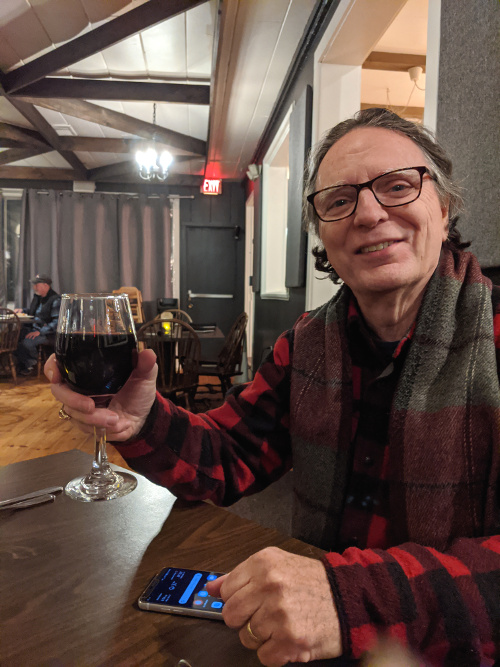 Hi, I'm Peter Rose, Founder of Longwood Currency Trading, and welcome to LCT Blog Post 12/10/20 — Pausing FOREX Trading VS Sitting On Your Hands.
Hi, I'm Peter Rose, Founder of Longwood Currency Trading, and welcome to LCT Blog Post 12/10/20 — Pausing FOREX Trading VS Sitting On Your Hands.
There's a big difference in just sitting on your hands and not trading from that of taking a pause in your trading. It's important that you understand that difference so you don't lose your edge, that intuitive view of the market we develop over time with experience.
Of note is that to this post, I have a companion video of the same title: Pausing FOREX Trading VS Sitting On Your Hands that puts all of this together from a different view point.
If you've come from watching that video, then press on here. However, if this is your starting point, I might suggest that you read through this before watching the video. Or, if you want, you can skip to the bottom of this post to watch that video now.
But first: a little winter story diversion!Of note here is that this past Saturday 12/05/20 New Hampshire just got slammed with its first winter Nor'easter. Up here in New Durham in the Lakes Region I'm at 960 feet above sea level,
 and we had at least 19 inches as a whole.
and we had at least 19 inches as a whole.
But I measured several places in the backyard that were 2 feet! Amazingly, some of the towns around us at lower elevations only got around 4 inches. Big difference!
The storm raged through all of Saturday night and into mid Sunday. We had 2 transformers near the house blow up Saturday night around 10:00 pm. That was a spectacular sight, if you've never seen that. Scary....
However, by mid day on Sunday, the sun had burst through the still dark cloudy sky.
 I was out shoveling for 4 hours, and came in a hurtin' unit for sure.
I was out shoveling for 4 hours, and came in a hurtin' unit for sure.
I got a fire going in the wood stove, and just sat down with a cup of coffee to finish reading Jack Schwager's Unknown Market Wizards. It had been a long day....
I just put a "pause" on everything, and relaxed on the sofa with coffee in one hand, and the book in my other.
About that pausing stuff....Speaking of pausing from shoveling snow, what does taking a pause in trading mean that's different than "sitting on your hands"?
Well, I did a video Sitting On Your Hands Is Still Trading that discusses this in relationship to what legendary speculator Jesse Livermore once said:
Too often we almost feel guilty if we're not hitting the order button to place a trade.
In another of my videos Don’t Make Anticipatory FOREX Trades I discuss this tendency from the standpoint of FOMO (fear of missing out) as a perfect time to just "sit on your hands".
So, it's appropriate to just "sit on your hands" until a real trade entry presents itself. You might have to do that for a few days, or even weeks if you're a long term trader.
But pausing in your trading is different.
When you pause, you actually make a choice to just stop trading for awhile. You might do this, for example, after suffering one of those probabilistic long series of losses we all go through from time to time. A pause is for an indefinite period of time, unlike the shorter "sitting on your hands".
A pause is not done against something, but rather for something.
You might wonder if the example I gave of laying off trading for awhile after suffering a series of losses isn't pausing against those bad beats. It's really not. Rather, in such a case, the pause is simply to give you time for clarity; a time to rest.
A pause could be as simple as just having other things that you want to do. Trading takes a lot of energy, and mind focus. You need to step back from the trading desk and screens every now and then to do... just nothing for awhile.
Pausing for the right reasonsPausing your trading is a good thing. However, if you get angry, or despondent over some trade or series of trades, throw the computer mouse against the wall as you scream at no one in particular that you're done with this stupid trading thing, then that's not a pause you're about to take. That's called quitting.
If that thought or word ever crosses your mind, then trading is not for you. Save yourself unnecessary grief, and the "weeping and gnashing of teeth", and just close your account. Take the money and open a gym membership, or buy a set of golf clubs.
But don't kid yourself with an attitude like that, that you're going to sit back down at the trading desk, and make it as a trader. You're just a whiner like Michael Douglas as Gordon Gekko in the movie Wall Street: Money Never Sleeps says:
Pausing is an essential component of risk management
I had a 40 year career as a real estate investor. During that period I learned the importance of pausing.
Because the time frame in real estate is so vast in comparison to trading, the signs of blow off periods that will obviously lead to severe contractions in the market are easily read if you know what signs you are looking for.
I was fortunate when I began my investing. The economy was just beginning to to come out of the huge 1973 recession and oil crisis. Current owners who had purchased at the top of the market, and had seen their equity evaporate in just months were eager to get out of their properties.
For example, I purchased a 4 unit apartment building owned by an out of town airline pilot. He had bought the property just because he could, knew relatively little about real estate, and had turned the operations of the building over to a local property management company.
Because of his inattention to the property, there were many issues with the building that enabled me to get the price down. Within just a few months I created a positive cash flow out of the building equal to over 25% per year against my acquisition costs. In just 4 years the net rental income alone returned all of my investment so I had a zero cost basis. And, as a bonus, the building had appreciated at around an average of 11% per year.
That was great, but as we approached the late 1980s prices were just going crazy. My entire portfolio was only 39% leveraged, and so I was in great shape. However, because I took the time to study conditions, I pushed back from the table to pause everything. I did not like what I saw happening in the markets.
And then a combination of the 1990 oil price shock, enormous debt accumulation of the 1980s (much of it real estate), and growing consumer pessimism combined with the weakened economy threw the country into a brief, but massive recessionary pitch over the cliff.
By 1992, though I had lost a Million Dollar net worth, I didn't lose any of my assets. Even though I had reduced rents across the board, all of my properties were still throwing off positive cash flow. That ended up being critical as, like many, I lost my job during that period. It would take me 9 months to find another.
Pausing enables a broader perspective of the marketAnd so, when someone is talking to you about risk management, you should listen. There are ways to prepare for these sorts of economic disasters so that you can pause without getting flushed out like so many who ride the train right off the tracks thinking the party will go on forever.
In real estate, you've got time to determine that conditions are changing, and to figure out your risk management. In trading, you simply do not have this time. You must, therefore, construct a risk management plan which accounts for so-called 'Black Swan' events because there are no such events.
These events are predictable because you can look back over time, determine the probabilistic standard deviation of these types of events, and thus have that precious time to include them into your contingency risk management plan.
You might be interested in a couple of discussions I've done concerning the topic: Probability Analysis In FOREX Trading. You can read an analytical approach to this in my blog post of that title, as well as a more descriptive video that I did.
Companion VideoHere's that companion video of the same title: Pausing FOREX Trading VS Sitting On Your Hands I mentioned at the start of this post that puts all of this together from a different view point.
Thanks for taking your time to read this post,
Peter
p.s. For more of my thoughts on trading in the FOREX foreign currency market, check out my YouTube channel for Longwood Currency Trading